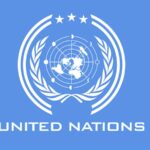Sada made this known in Agbaja, in Lokoja Local Government Area, during a facility tour of Kogi Mines Limited, a private company, operating in the area.
He said that so far the company had delineated more than 500 million tonnes of iron ore in the area.
The minister said the federal government has introduced policies to encourage investments in the solid minerals sector in order to achieve the National Industrial Revolution Plan, adding that the mining sector would provide employment opportunities for many Nigerians.
Sada said it was important for the country to diversify its economy from oil to the solid minerals sector.
The minister advised the company to comply with mining and environmental regulations by treating and relating well with the host community to avoid any conflict.
Mr Kevin Joseph, the Executive Director of the company, said that the firm would begin mining of iron ore in the area in the last quarter of 2016. (NAN)
“It should be noted that anywhere in the world of mining, any project of this size, from start to production is a 10-year cycle.
“If the current support for the actualisation of the project is maintained from all quarters, we will succeed in doing so within six years,’’ Joseph said.
He said the company which started exploration in 2009, had carried out many social responsibility projects for the host community.
The executive director promised that the company would comply with environmental rules and community development agreements reached with the host community.
Mr. Samuel Alabi, a senior geologist with the company, said the firm would provide employment for more than 700,000 Nigerians when it began production in 2016.
Alabi said that about 90 per cent of the project was carried out by the Nigerian experts, while their foreign partners supervised the work.
However, Alhaji Muhammed Baiyerohi, the Olu of Oworo, appealed to the federal government to review the Environmental Impact Assessment Report in the interest of the local environment.
He urged the government to ensure that the company’s operations met international best practice. (NAN)
 Join Daily Trust WhatsApp Community For Quick Access To News and Happenings Around You.
Join Daily Trust WhatsApp Community For Quick Access To News and Happenings Around You.


